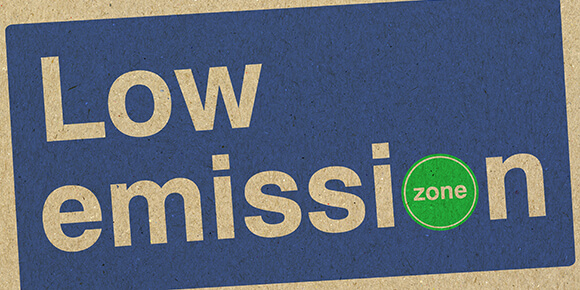You can’t afford to ignore the ULEZ charges – tips for fleets
26/03/2019 00:00:00by Mark McKenna26/03/2019 00:00:00You canât afford to ignore the ULEZ charges â tips for fleetsBluedrop Services


With the Ultra-Low Emission Zone (ULEZ) coming into force in central London on 8th April the clock is ticking. Business fleets can’t afford to ignore the upcoming ULEZ charges with only a few weeks left to prepare.
So, what is an Ultra-Low Emission Zone?
An Ultra-Low Emission Zone (ULEZ) is a geographical area where all vehicles travelling within need to meet strict emission requirements or face a daily charge to travel. The first ULEZ will be introduced in London within the UK, with further zones to follow.
The London Ultra-Low Emission Zone will cover the same area as the current Congestion Charge zone. It will apply to all vehicles 24 hours a day, seven days a week.
Which vehicles will be affected?
All cars and vans that don’t conform to Euro 6 Emission standard for diesels and all those that don’t conform to Euro 4 for petrol vehicles will be affected and subject to a daily charge. Motorcycles and mopeds will need to meet Euro 3 emissions standards.
Even vehicles that were LEZ compliant before may not be exempt from ULEZ charges and its time to start transitioning to compliant vehicles.
With a charge of £12.50 for cars, motorcycles and vans up to 3.5 tonnes and £100 for lorries over 3.5 tonnes and buses and coaches over 5 tonnes, this is something that can’t be ignored.
If your business doesn’t pay the charge, then automatic number plate recognition will detect entry to the zone, and you will face a penalty charge notice of £160 or £80 if paid within 14 days.
Advice for fleets travelling in the Ultra-Low Emission Zone
- Plan your route carefully. If you can, avoid travelling through the ULEZ.
- Implement effective logistics planning by using LCVs on routes where HGVs have previously been used to mitigate costs. If you can swap an HGV for and LCV then significant cost savings can be made. In addition to this by renting LCVs you won’t suffer a significant cost outlay and can test alternative logistics strategies without the upfront cost.
- Investigate hire companies that offer customisable Euro 6 compliant vans or cars on a minimum term or flexible basis. Many providers will offer a one cost plan including servicing, maintenance, fleet insurance, road tax and break down assistance.
- If you are disposing of your old vehicles look out for “we buy you rent” schemes. This will allow you to gain enough funds from your non-complaint fleet in exchange for new compliant rentals.
- If you would prefer to own your own business vehicles there are many providers who will part exchange your old vehicles for new Euro 6 compliant alternatives.
- The Ultra-Low Emission Zone will be expanded in 2021 to cover an area 18 times larger than the central London ULEZ, expanding to the North and South circular. With this in mind it would be wise to start thinking of upgrading your vehicles ready for these changes.
Dave Pickburn, Managing Director from Stream, explains that "businesses should use compliant vehicles wherever possible when entering these zones. If compliant vehicles aren’t available, avoid the zones or budget for ULEZ charges. Businesses should plan to replace or retrofit their vehicles to reduce emissions & comply with ULEZ exemptions. Some local authorities are even offering grants to help with this. The environmental impact of the logistics sector is something that we all have to consider. The move towards Euro-6 compliant EVs and ULEVs is inevitable. Early adopters can already reap benefits from running low emissions fleets. That's why Stream are proud to support clean air zones, clean vehicles and ULEVs with functionality built right into our software.”
Every business should be aiming to have as many of the fleet as possible meeting the new Euro 6 standard to avoid charges and taxes. That said, it’s important to weigh up the total life cost of any new fleet in advance of deciding whether to convert fully to ultra-low emission vehicles. Any investments should be well planned and budgeted for with all funding options fully considered.Return to blog menuWant to find out more about Bluedrop's Motor Fleet Insurance?
Call our friendly team now for the right insurance cover - at the best price
+441489780491
Calls recorded for training and quality.



 Privacy and Cookie Policy
Privacy and Cookie Policy